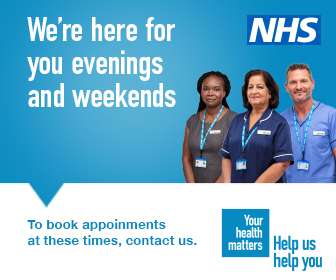Primary Care Networks
From 1 July 2019, Primary Care Networks (PCNs) launched in Devon. It is the biggest transformation in more than a generation to the way family doctors work.
General practices across Devon will begin working together formally within local primary care networks (PCNs), typically serving patient populations of 30,000-50,000.
There are 31 PCNs in Devon. All have appointed GP clinical directors to lead work across the member practices. In East Devon there are 3 PCNs, WEB (Woodbury, Exmouth and Budleigh), HOS (Honiton, Ottery St. Mary and Sidmouth) and TASC (Townsend, Axminster and Seaton & Colyton). Dr Barry Coakley is the Clinical Director for WEB, Dr Jennie Button is the Clinical Director for HOS and Dr Sarah Ellis is the Clinical Director for TASC.
Networks will, as they develop, recruit multi-disciplinary teams, including pharmacists, physiotherapists, paramedics, physician associates and social prescribing support workers, freeing up family doctors to focus on the sickest patients. The initiative comes alongside efforts to recruit more GPs as part of the NHS Long Term Plan.
PCNs will support each other while offering more specialist care services to patients and taking on a wider range of health professionals, such as:
- Clinical pharmacists, who can make sure patients’ medications are right
- Nurse practitioners, who can see and treat patients independently
- Physiotherapists, to help with recovery and mobility
- Paramedics, who can provide urgent care at the surgery
- Physician associates, who can, for example, take medical histories and blood pressures, complete insurance forms and explain treatments, freeing up the GP
- Social prescribing support workers, to help address non-clinical issues such as isolation and provide a more-holistic approach to care
This approach is designed to free up time for GPs, so they can focus more on supporting patients with the greatest needs and the most-complex conditions.
Up to a third of appointments do not need to be with a family doctor, and the new recruits will free up GPs to spend more time with patients who need them most, offering longer appointments to those who need them.
GP practices will be able to drive further action on detecting and preventing conditions such as cancer and heart disease, as well as doing more to tackle obesity, diabetes and mental ill health, and support older people at home and in care homes.
PCNs are a key part of the NHS Long Term Plan for improving services, published earlier this year. They will bring billions of pounds in extra investment nationwide to sustain general practice in the short term and to improve access and care in the longer term.
Patients do not need to do anything differently – just continue using their own surgery as usual.
Watch this short film by NHS England to find out more:
General Information
We use cookies to help provide you with the best possible online experience.
By using this site, you agree that we may store and access cookies on your device. Cookie policy.
Cookie settings.
Functional Cookies
Functional Cookies are enabled by default at all times so that we can save your preferences for cookie settings and ensure site works and delivers best experience.
3rd Party Cookies
This website uses Google Analytics to collect anonymous information such as the number of visitors to the site, and the most popular pages.
Keeping this cookie enabled helps us to improve our website.



